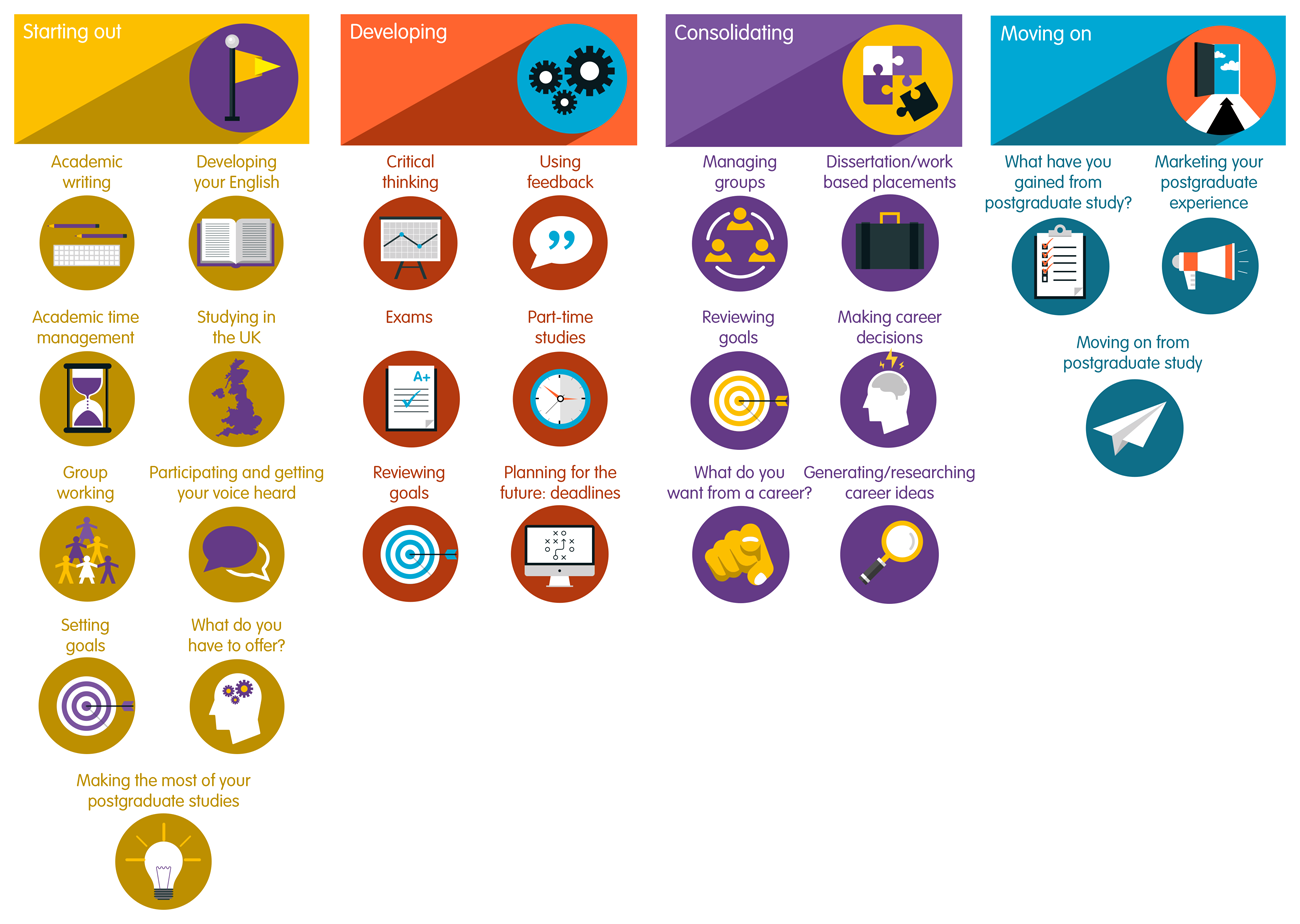Studying for a postgraduate award through online learning allows a lot of flexibility but most students are balancing their studies with other commitments such as work or family. As a result we find that students often report their studies as a very intensive time and welcome support that will enable them to engage with their studies more effectively (and in a time efficient way!).
The Careers Service and the Institute of Academic Development have developed a new resource, Supporting taught postgraduates, to help taught postgraduate students to engage quickly and effectively with their studies. The resources provide support during your programme to help you to achieve academically, and take opportunities for career enhancement, and to support you to make and realise successful career decisions. It pulls together a lot of information that is scattered around other parts of the University website and ensures it is directly relevant for postgraduate students. Covering topics such as academic writing, time management, critical thinking, and career planning, we hope it will be of use to you as you continue your studies at the University.
You can get an overview of the topics covered in the image below or go directly to the website.







